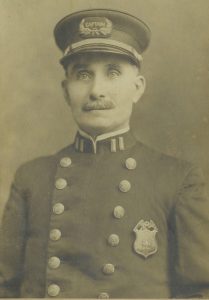New Jersey Whistleblower Law Amendments Enhance Employee Protections
New Jersey’s whistleblower law was recently amended to further protect New Jersey private and public sector employees from being forced by their employers to sit through required “captive audience” meetings in an attempt to improperly coerce their employees from exercising their rights.
The Conscientious Employee Protection Act
The Conscientious Employee Protection Act (CEPA) is New Jersey’s whistleblower law. Considered one of the United States’s strongest whistleblower protection laws, it forbids employers from retaliating against their employees for disclosing, objecting to, reporting or refusing to participate in activities which they reasonably believe are illegal, fraudulent, constitute improper patient care, or violate established public policy.
CEPA’s Previously Existing “Captive Audience” Meeting Protections
The Whistleblower Law already prohibited employers from requiring their employees to attend employer-sponsored meetings or participate in communications in which the employer’s opinion about religious or political matters were to be communicated. It also prohibited discharging or otherwise retaliating against an employee for objecting to such action.
CEPA’s New “Captive Audience” Meeting Protections
In 2025, CEPA was amended to broaden the definition of “political matters” to include “electioneering” and an employee’s “decision to join or support any political party or political, civic, community, fraternal, or labor organization.” The Whistleblower Law was also amended to make clear that it was only requiring attendance or participation which was prohibited, and that it was not prohibiting an employer from merely inviting its employees to attend. The CEPA amendments also made clear that this did not prevent employers from requiring employees to attend mandatory training aimed at reducing or preventing unlawful workplace discrimination or harassment. The Whistleblower Law amendments also made clear that government employers may require their public employees to attend as the entity’s agent or representative “for the purpose of communicating the employer’s proposals to change legislation, proposals to change regulations, or proposals to change public policy.”
Governor Murphy explained: “Workers are the backbone of our state. Today, we are honoring the history of the labor movement while strengthening workers’ rights.”
The Amendments were widely supported by labor organizations, including the New Jersey State Fraternal Order of Police (FOP), and the New Jersey State Firefighters Mutual Benevolent Association (“FMBA”), the Teamsters, the New Jersey Education Association (“NJEA”), the AFL-CIO, the New Jersey Building and Construction Trades Council.
Effect of the Amendments
New Jersey’s Conscientious Employee Protection Act was already one of the strongest whistleblower protection laws in the country. These amendments further protect employees from being coerced regarding the exercise of their political, religious or labor rights.
If an employer violates these rights, it opens itself up significant liability. If an employee prevails in a CEPA lawsuit, the employee may recover compensatory damages, such as lost pay and emotional distress, as well as punitive damages. The employer can also be required to reimburse the employee for her attorneys fees and litigation expenses.
These remedies should serve as a strong incentive deterring employers from retaliating against ethical employees.
Contact Us
Our New Jersey employment attorneys represent employers and employees in all aspects of New Jersey employment law, including whistleblower litigation and compliance. Call us at (973) 890-0004 or fill out the contact form on this page to schedule a consultation with one of our employment attorneys. We can help.
 New Jersey Lawyers Blog
New Jersey Lawyers Blog

